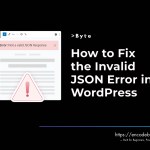A Content Management System (CMS) is a software application or a collection of related tools used to produce and manage digital content. It enables users to create, administer, and alter website content without the need for specialist technical skills.
- Best CMS Platforms to Build a Website
- #1 WordPress.com
- #2 Wix
- #3 Joomla
- #4 Drupal
- #4 Shopify
- #5 Magento
- #7 Squarespace
- #8 BigCommerce
- #9 SharePoint
- #10 Weebly
- #11 HubSpot CMS
- #12 Ghost
- #13 Blogger
- #14 PrestaShop
- #16 TYPO3
- #17 Kentico CMS
- #18 DotCMS
- #19 Grav
- #20 Silverstripe
- #21 Umbraco
- #22 concrete5
- #23 Bynder
- Best CMS Platforms: Frequently Asked Questions
CMS also allows you to create your own system for producing web pages, storing pictures, and performing other duties. The content management system manages all of the fundamental infrastructure for you, allowing you to focus on more critical areas of your website.
The following is a curated selection of Top CMS Software, along with its most popular features and website connections. The list includes both open source (free) and commercial (paid) software.
Best CMS Platforms to Build a Website
| Name | Used for | Pricing | Link |
|---|---|---|---|
| WordPress.com | Blog | Starts at $4/month | Learn More |
| Wix | CMS | Starts at $12/month | Learn More |
| Joomla | CMS | Free | Learn More |
| Drupal | CMS + eCommerce | Free | Learn More |
| Shopify | eCommerce | Starts at $29 | Learn More |
| Magento | eCommerce | As per requirement | Learn More |
| Squarespace | Blog | Starts at $14/month | Learn More |
| BigCommerce | eCommerce | As per requirement | Learn More |
| SharePoint | Internal Corporate Websites | Starts at $5/month. | Learn More |
| Weebly | CMS + eCommerce | Free | Learn More |
#1 WordPress.com
WordPress is the most popular open-source and free CMS in the world. It began as a blogging platform, but features have been expanded extensively over the years, and it is now developing as a comprehensive content management program.

Features:
- Using Page Builder plugins, you may create several pages without any coding knowledge.
- WordPress hosting or self-hosting are both options.
- Allows you to generate websites for your blog’s many functionality.
- Backward compatibility is provided by this top content management system.
- WordPress Plugins provide good unofficial assistance in addition to the primary help manual.
- WordPress allows you to easily add articles or pages to your website.
- WordPress installation via cPanel is available from hosts with a few mouse clicks.
Pros
- Using Page Builder plugins, you may create sophisticated pages without any coding knowledge.
- The largest community assists you in locating the appropriate themes and plugins.
- Capability to design stunning webpages for a variety of purposes, including advanced SEO
- WordPress Plugins provide good unofficial assistance in addition to the primary help manual.
- It allows for the quick adding of articles or pages to the site.
Cons
- Lack of built-in flexibility for larger, more complicated sites.
- WP core requires regular updates, which may cause your existing plugins to fail.
Link: https://wordpress.com/
#2 Wix
Wix is a user-friendly drag-and-drop website builder for beginners. This web editing tool allows you to drag and drop items into any online page. With Wix’s assistance, the entire web-building process becomes easy, straightforward, and quick.

Features:
- It assists you in optimizing for mobile use.
- Wix has a safe shopping cart.
- Every order can be easily tracked.
- Inventory and order management are among the services offered.
- Provides the ability to send and manage invoices.
- It contains a tool for recovering abandoned carts.
- Customer access/membership
- Stores that are multilingual are available.
- Google Analytics integration with Square POS allows you to track traffic.
Pros
- Provides photo galleries for displaying your store’s merchandise.
- A wide choice of responsive and eCommerce-designed templates are available.
- It includes a vast number of templates that have been categorized.
- It offers free hosting as well as the ability to design your business precisely as you want it.
- Effective design and SEO tools.
- Wix HTML5 editor is integrated for personalizing each page.
- A drag-and-drop builder eliminates the need for coding expertise.
Cons
- The template cannot be readily changed.
- Wix’s loading speed is not perfect.
Link: https://www.wix.com/
#3 Joomla
Joomla is another famous CMS that allows you to create a website as well as a variety of business-related online apps. It operates successfully on numerous web servers with no problems since it is simple to use and a very comprehensive free CMS application.

Features:
- It gives you the ability to control when articles are published.
- Joomla is appropriate for blogging websites.
- With a simple click, you may add new features to your material.
- It strikes the ideal blend between usability and functionality.
- Edit material without knowing how to code.
- This is one of the top content management systems with an easy-to-use admin interface.
- Templates are available for free and may be applied with a single click.
Pros
- Joomla provides a simple admin panel for managing big volumes of data.
- It allows you to examine the setup before starting the installation.
- The host provides Joomla installation via cPanel, which requires no technical experience.
Cons
- Provides extremely little choices for customizing features and functionality.
- Because plugins may not always work well together, you must have coding skills to repair them.
Joomla! may be found at https://www.joomla.org/.
#4 Drupal
Drupal is an open-source web development platform that allows you to create an online content management system and user communities. The Drupal CMS platform may be used to create anything from a basic blog to a huge corporation’s content gateway.
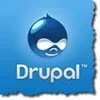
Features:
- Aids in the creation of Panels, Views, and Web Forms.
- A website built using Drupal CMS is more secure than other CMS systems.
- There are several fantastic developers accessible for assistance.
- Allows you to handle complicated, multi-domain environments.
- This is one of the greatest content management systems, with thousands of modules and themes available.
Pros
- Drupal modules provide appealing customization choices.
- This Blogspot program has a simple and clean core code.
- It assists you in managing difficult multi-domain management.
- You may personalize every element of your experience.
- It lets you edit root files with a number of plugins.
Cons
- If you use a lot of modules, the setup process is highly time-consuming and long.
- Extension upgrades are not always backend-compatible.
URL: https://drupal.org/
#4 Shopify
Shopify is the greatest website builder on the market. This web design tool provides a constantly expanding service that already powers over 800,000 online stores. It has the most competitive price schemes. It offers a free trial that allows you to test out the numerous features of this web builder tool.
You may sell your products and services online using this content management system. It is one of the most user-friendly online shop builders, with the ability to add an infinite number of goods straight from the dashboard.

Features:
- The shops are mobile-friendly.
- Orders must be created by hand.
- More carriers now enable real-time shipment calculations.
- More than 100 professional themes are available.
- Shopify Plus offers enterprise expansion.
- Include product star ratings and reviews.
- Order fulfillment and delivery capabilities are extensive.
- Amazon Marketplace integration.
- Built-in blogging platform with a lot of power.
- All plans include unlimited file storage.
Pros
- It offers superb performance as well as a high uptime guarantee.
- Shopify provides free hosting, so you don’t need to set up a hosting account before uploading your items.
- Plans include Shopify theme website builder tools.
- API allows developers to quickly build on the platform.
Cons
- There are certain limits for larger online retailers, thus it is not ideal for businesses.
#5 Magento
Magento is an online store platform. It gives online merchants unprecedented freedom and control over the content, appearance, and functioning of an e-commerce business.
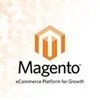
Features:
- Aids in reporting and analytics.
- This is one of the greatest CMSs for exploring products and catalogs.
- This is one of the top content management systems with a site administration capability.
- Marketing campaigns and tools of many sorts
- International Assistance
- Because Magento is a costly system, the installation cost is exorbitant.
Pros
- Magento has a plethora of out-of-the-box capabilities that will assist you in running your business.
- Magento is a mobile-friendly platform that allows you to easily create a mobile website.
- You may alter the code, customize templates, and build the functionality precisely how you want it using this CMS.
Cons
- Because Magento is a costly system, the installation cost is rather significant.
- Magento is a multi-tiered application. Its complex construction makes designing the site tough and time-consuming.
Link: https://magento.com/
#7 Squarespace
Squarespace is a website building tool noted for its well-designed templates. This application provides Squarespace software, which integrates hosting, templates, themes, e-commerce, CMS, and technical support into a one solution.

Features:
- Templates for modern design.
- Change the fonts, colors, and page settings on your websites.
- The editing interface is simple to use.
- Content layouts that may be customized.
- You may add your own CSS and other coding to this CMS platform.
- This is one of the best CMSs for integrating social networking.
- The blog editing interface is a drag-and-drop interface.
- It is possible to establish private blogs.
Pros
- Templates with a focus on design and imagery.
- You may host e-commerce websites using this service.
- Modern and elegant in its simplicity.
- It allows you to construct a great website without having to know any coding.
Cons
- Sitemaps and other XML files cannot be edited.
- Subpages are extremely complex to develop and may cause maintenance concerns.
Visit: https://www.squarespace.com/
#8 BigCommerce
BigCommerce is a contemporary e-commerce platform. It provides completely customisable themes with HTML, CSS, and JavaScript support. It also allows you to create a mobile-friendly eCommerce store.

Features:
- This CMS software is one of the greatest free online stores that allows you to design your site on WordPress while also integrating a comprehensive back-end platform.
- You have the option to preview before publishing.
- Capabilities for selling through several channels.
- Increase visitors by using customisable, SEO-friendly URLs.
Pros
- It enables you to utilize a BigCommerce free domain name.
- To make payments, you may use digital wallets such as PayPal, Apple Pay, and Amazon Pay, or you can use a credit or debit card.
- Live chat, email, phone help, community support, and more are all available.
Cons
- Limited themes and integrations may prevent you from using a third-party solution to expand your business.
Visit: https://www.bigcommerce.com/
#9 SharePoint
SharePoint is a Microsoft platform that includes third-party tools and an online hub for developing web applications. SharePoint CMS is a straightforward content management system that is integrated into a SharePoint site.

Features:
- Follow persons, websites, categories, and documents
- Company or organization that provides food
- @ and hashtags are provided for group sharing and collaboration.
- Social capabilities are fully integrated with Windows Phone 7 and 8.
- New community site definition with many potential features such as moderation, debate, membership, and so on.
- Updates on security and document activity in the stream
Pros
- Data interaction with the aggregated feeds web component is possible.
- Complete social interaction with Windows Phone 7 and 8.
- Include a preview of files and documents in the news stream.
Cons
- It is difficult to maintain and utilize.
- Intranet social components are lacking.
Visit SharePoint
#10 Weebly
Weebly is a drag-and-drop website builder that is simple to use. This application provides 50 customizable templates to assist you in creating a personalized blog for your business. It allows you to simply modify the blog template.
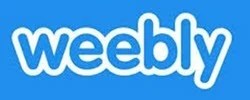
Features:
- Weebly provides a free plan for a limited time, allowing you to test it out on a modest scale before purchasing.
- Provides built-in SEO instructions that are simple to grasp.
- The navigation hierarchy has an infinite number of levels.
- A beautiful header with a slideshow or movie background.
- Video or audio player built-in
- Pages that require a password to access.
Pros
- There are several responsive themes available.
- For other purposes, this CMS includes a plethora of beautiful themes with varying page layouts.
- Weebly provides a comprehensive and user-friendly shopping cart with SSL encryption and support for all major payment methods.
Cons
- The platform may occasionally be glitchy and require a reload.
- Detailed HTML customisation is available, but requires prior coding skills.
Visit: https://www.weebly.com/
#11 HubSpot CMS
HubSpot is an all-in-one platform for marketing, customer care, and sales. It allows you to convert leads, increase traffic, and track your whole marketing funnel in one location. This CMS also allows you to create and share email templates.
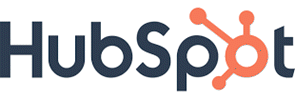
Features:
- It has a drag-and-drop feature for creating web pages, landing pages, email templates, and blog articles.
- You may communicate with your prospects using the website’s live chat feature.
- It is compatible with HubSpot CRM, Google Calendar, and Office 365.
- You may receive notifications when someone opens an email, downloads an attachment, and does other things.
Pros
- Provides built-in A/B/n testing to help you improve your content.
- Make SEO tips in order to rank higher in Google search results.
- Contact attribution is used to determine where leads and sales come from.
- If you want assistance, it is available 24 hours a day, seven days a week.
- Simple and fast to use.
- Allows for integration with other applications.
Cons
- The mobile version might use some work.
- Creating workflows may be difficult and perplexing.
Visit HubSpot CMS
#12 Ghost
Ghost is another prominent CMS platform that is particularly developed for bloggers. It is referred to as a CMS without a head. This implies that the CMS platform never requires content to be presented in a certain manner.
So, the material you create can be shown on a website as well as distributed to a mobile app or something else completely.

Features:
- Lightweight and compact
- Using cutting-edge technology
- Themes are simple to tweak and build.
- Only suitable for blogging
- Membership administration
- There are hundreds of integrations available.
- User role administration
- Excellent documentation
Pros
- It lets you put special characters around words to make them bold, italic, and so on.
- Ghost offers a card-based content editor.
- Excellent SEO help (integrated into Ghost).
- This CMS is well-suited for content monetization. As a result, you may simply manage an online magazine or journal that people pay for.
Cons
- CMS platform created specifically for blogging, therefore some users believe it has grown unduly invasive since it offers paid memberships to your site’s viewers.
Website: https://ghost.org/
#13 Blogger
Blogger is a blogging platform that allows users to construct and manage their own webpages. It provides a variety of functionality and design features. It works flawlessly, and you do not need to purchase, install, or maintain different software to create your website.

Features:
- The blog editing interface is a drag-and-drop interface.
- Allows for the conversion of raw data.
- It is possible to establish private blogs.
- Web feed alternatives.
- Editing links in Composed mode.
- Provides blogger addresses for certain countries.
Pros
- Blogger makes it simple to begin blogging.
- There is no need for you to install, update, or pay for hosting.
- Blogger provides an abundance of room. As a result, there is no limit to the number of entries you may have each blog.
Cons
- Blogger is not the finest CMS platform for creating a website.
Website: http://www.blogger.com/
#14 PrestaShop
PrestaShop is an e-commerce system that includes everything you need to set up an online store and expand your business. It provides a mobile-optimized platform with a variety of eCommerce shop templates to choose from.

Features:
- It enables you to post your material on social media and your blog in order to attract more readers.
- The Prestashop platform enables you to create an online store in a variety of languages and currencies; your business knows no boundaries.
- Colors, logos, and designs may be chosen from a variety of professional-looking themes.
- It allows you to manage your store’s items, orders, customer interactions, and statistics.
Pros
- With some coding skills, it is very configurable.
- Provides a plethora of third-party addons.
- Self-hosted, complete control over server files.
Cons
- Add-ons can be costly.
- Demo site with limited functionality
Prestashop URL: https://www.prestashop.com/en
#15 Contentful
Contentful is an API-first content management platform that allows you to develop, manage, and distribute content across all digital channels. It is one of the best headless CMS tools for querying RESTful API. Because it is a headless CMS, you will need some technical skills to set it up.

Features:
- It enables you to integrate material so that it can be modified from a single point.
- This is one of the greatest headless CMSs that can be utilized in any digital channel.
- Integrate with hundreds of cutting-edge technologies for translation, segmentation, eCommerce, and more.
Pros
- Contentful offers structured, adaptable data models that accommodate a wide range of data kinds and content editors.
- Excellent built-in versioning tools, including history and draft states, making it simple to make changes and roll back as necessary.
- It offers a simple user interface and decent support for multiple spaces.
Cons
- Does not offer documentation for entry-level developers.
Link: https://www.contentful.com/
#16 TYPO3
TYPO3 is a PHP-based free enterprise-class CMS. It is one of the most popular CMS alternatives worldwide, with a strong presence in Europe and other countries.
Because it is so adaptable, businesses of all sizes wishing to expand may benefit from this CMS platform. It does, however, have a steep learning curve and is not the most user-friendly CMS on this list.

Features:
- Excellent choice for enterprise-level sites.
- Support for multilingual webpages is included.
- You may manage several sites with a single installation.
- It allows you to exchange data and tools between your websites.
Pros
- TYPO3 contains over 9,000 out-of-the-box functionalities that you may utilize right now.
- TYPO3 includes security features, compliance tools, and frequent upgrades.
- The system has thousands of extensions that can be deployed fast and easily.
- Administrators’ system that is elastic.
- Typo3 supports the construction of several components, such as static HTML with dynamic content.
Cons
- Modularity and scalability place more demands on server parameters.
- Typo3 is difficult to install and configure.
The URL is https://typo3.org/.
#17 Kentico CMS
Kentico Xperience is a digital experience platform that has won several awards. It brings together content management, digital marketing, and commerce. This is a great headless CMS for current websites.

Features:
- Management of Translations
- ASP.NET MVC Support
- Multi-site administration
- This is one of the top headless CMSs that provides tailored experiences.
- It fits smoothly with any technology stack.
- Document management is available.
- Support for web farms
Pros
- Provides a simple interface
- It has a plethora of functionality as well as fantastic customizing capabilities.
- It has up to 50% more out-of-the-box functionality.
- It provides service around the clock from a variety of places.
Cons
- Kentico’s email marketing tools are difficult to utilize.
- There is no live chat assistance available.
Link: https://www.kentico.com/
#18 DotCMS
dotCMS is a top open-source headless CMS. It provides a CMS Cloud that is entirely safe, scalable, and customized. It enables you to swiftly and effectively grow throughout your corporation.

Features:
- Content Management System for the Future
- It contains an Edit Mode Anywhere function that offers WYSIWYG editing, layout, navigation, and multi-site administration to corporate customers.
- There is support for both static and dynamic content publication.
- Allow for deployment on either a public or private cloud.
- Provides a glimpse of a mobile device.
Pros
- DotCMS is a developer’s sandbox with several features and unique content kinds, as well as flexibility.
- It is an excellent CMS for a business setting.
- Integrations with CRMs, eCommerce systems, AI platforms, and more.
- Full-text and metadata search.
- Preview of a mobile gadget.
Cons
- There is no free trial available.
Website: https://dotcms.com/
#19 Grav
Grav is a simple CMS with a flat-file design. This implies that Grav does not require a separate MySQL or equivalent database. On your server, everything is saved in a single file.

Features:
- MIT-licensed open source
- Functions that do not need a database management system
- Themes and plugins can be added to increase the functionality.
- It is a pre-configured bundle that includes sample websites.
Pros
- It is one of the easiest CMS systems to install and configure since you simply need to unzip it and start using it.
- It facilitates the process of backing up your CMS.
- More than 300 plugins are available to increase the functionality.
Cons
- Only appropriate for modest tasks.
Get Grav (https://getgrav.org/)
#20 Silverstripe
Silverstripe is a CMS that is very adaptable and extendable. This CMS solution includes a foundation as well as a CMS and may be configured to execute any feature conceivable.

Features:
- Very adaptable and expandable
- It allows you to get started quickly and distribute information to your users as soon as possible.
- Enterprise-level security and support.
- It has a secret power and capability that developers may alter.
Pros
- This CMS Framework was designed from the bottom up to be simple to use and customize.
- It is optimized to create highly reusable code.
- Provides a robust frontend template engine.
Cons
- With a relatively modest audience, useless information is available online.
- There aren’t as many modules available as in WordPress.
- Documentation is lacking.
Link: https://www.silverstripe.org/
#21 Umbraco
Umbraco is an excellent CMS for highly customized and one-of-a-kind projects. It gives you access to some of the best plugins and software packages available for the.NET platform.

Features:
- CMS that is adaptable, allowing you to design and manage your material the way you want.
- Provides a simple editing experience
- Band system and component selector
- Simple multilingual management
- Provides the best website hosting.
- Form creators that are simple to use
- Open source and well-documented API
Pros
- Image scaling and media handling.
- The content hierarchy/tree.
- Usability in the back office.
- Allows you to use the MVC framework.
- You may create content in a variety of ways.
Cons
- Include a minimum of continuous integration/continuous deployment features.
URL: https://umbraco.com/
#22 concrete5
Concrete5 is an open-source content management system (CMS) for publishing material on the World Wide Web and intranets. This is one of the greatest CMS solutions since it is built for individuals with no technical knowledge. Users can edit site material straight from the page. It allows you to control the versions of each page. This CMS allows users to alter photos on the page using an integrated editor.

Features:
- Allows you to create forms for typed information with auto-save and drafts.
- Theme controls are simple.
- Media management layouts keep responsive grid points.
- Drag & drop stuff Automatic add-on update notice
Pros
- Installation is straightforward.
- Simple to install from the concrete5 marketplace via the site dashboard.
- Thousands of add-ons are at your disposal.
- Version upgrade in a single click.
- Add-ons that work with the core.
Cons
- Because file categorization is a bit complex, looking for files might be irritating at times.
- There is no autosave function to backup your work.
Link: https://www.concrete5.org/
#23 Bynder
Bynder is a content management system (CMS) with millions of users worldwide. It has innovative branding and marketing elements. It enables professionals to speed up the development of video and other content, get the correct assets to the right people and systems, and maintain brand compliance.
Brands such as Spotify, Puma, TED, and Five Guys utilize Bynder to obtain content and campaigns to speed the end-to-end creative content lifecycle.

Features:
- Excellent tools for teamwork
- Style guidelines are simple to develop and distribute.
- Ideal for marketing
- Digital asset management provides a creative process.
Pros
- User-friendly interface, clean and easy to browse, which has aided in adoption and training to feel empowered to utilize the portal.
- Customizable filters are very useful for rapidly identifying certain photographs.
- Safe and secure web-based storage frees up a lot of space on your Google drive or server.
Cons
- There aren’t a lot of customizing choices.
Link: https://www.bynder.com/en/
Best CMS Platforms: Frequently Asked Questions
❓What is a CMS Platforms?
A Content Management System (CMS) is a software application or a collection of related tools used to produce and manage digital content. It allows users to create, maintain, and edit website content without requiring specialist technological skills.
? Which are the Best CMS Software?
Some of the best CMS software and platforms are listed below:WordPressWix Joomla Drupal Shopify Magento Squarespace BigCommerce
?How to choose the best CMS platform for your website?
Here are some crucial considerations to keep in mind while choosing the finest CMS platform for your website.
Content editor: CMS software is designed for simple content production and administration, therefore an easy-to-use content editor is an important element to consider.
Design adaptability: You should choose a CMS that offers a wide range of themes and designs.
Customization: It is critical to have a CMS that allows you to change the appearance and feel of your content to match your brand style guide.
User Management: Setting permissions and managing users may assist provide the correct individuals access to critical tools while also restricting certain functions to specific managers or other executives.
Integrations: It should be compatible with your current marketing technology stack.
Support: Having dependable customer service or a comprehensive knowledge base for your CMS will benefit not only you and your difficulties, but also your time management.
price: Every CMS has a price scheme. Some are open source and free. You will, however, have to pay to host them. In certain cases, you only need to buy the program and begin using it.
SEO: It is critical that the software you choose provides you with the capabilities you need to rank in Google and other search engines.
Personalization: Choose the finest CMS for business use cases that helps you to build individualized visitor experiences. It should also aid in the improvement of your marketing and conversion rates.
Security: You will be responsible for your site’s security with certain CMS platforms, while others will manage it for you.
? Do I need a CMS to star a blog?
Yes, a blogging platform is a sort of CMS that allows users to post their material. There are several blogging platforms to choose from. WordPress, Weebly, Blogger, and other popular CMSs are good places to start.
❗ Why use web content management software?
Web CMS systems are unique in their capacity to develop front-facing websites for a company in order to attract existing or future clients. Some CMS software does not require any coding. Web CMS can be utilized to solve a number of issues that digital marketers commonly face.
❓What is headless CMS?
Headless CMS is a sort of CMS software that allows you to handle all of your content on the backend. Then, by requesting data via an API, you may create your own frontend.
A headless CMS requires extensive knowledge to set up but provides greater freedom in how and where you utilize your information.






